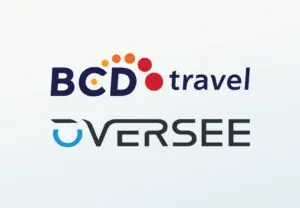
BCD Travel and Oversee partner to implement Agentic AI for scalable, traveler-centric service
Pilot success leads to an extended partnership with Oversee to streamline agent operations and enhance traveler experience.

Pilot success leads to an extended partnership with Oversee to streamline agent operations and enhance traveler experience.

New AI-powered feature helps agencies respond faster with smarter, more relevant suggestions—without adding agent workload.

Are non-revenue tasks eating into your profits and your agents’ time? AgentSee automates the mundane so your team can focus on high-value tasks, happier customers, and better margins.

The BTN Group is pleased to announce the finalists for the Business Travel Awards Europe 2025, which showcase industry leadership, partnership and innovation.

Find out why leading TMCs are using Oversee reshopping and auditing tools to unlock savings.

AgentSee, is spotlighted in Business Travel News as a leading example of how agentic AI is transforming corporate travel.